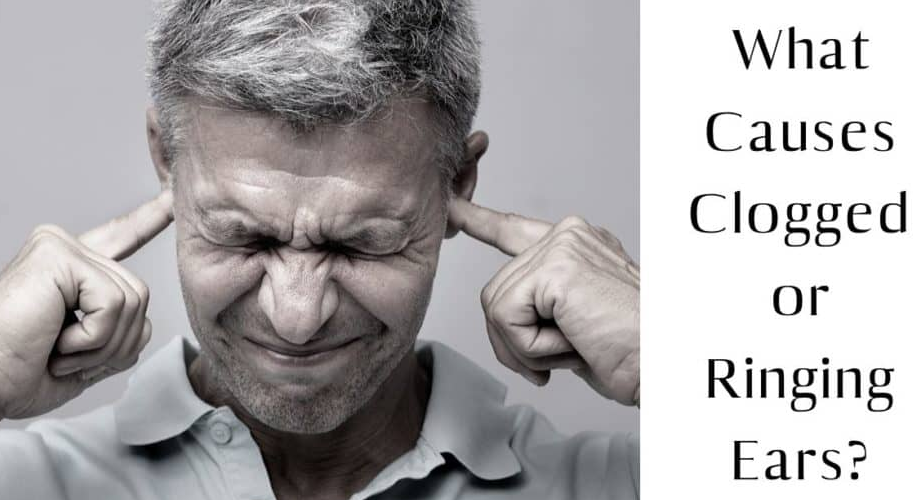Tinnitus or ringing in the ears is a condition or symptom where one hears a whooshing, buzzing, ringing or swooshing sounds in one side or both of their ears. It may or may not be accompanied by hearing loss as a secondary accompanying condition. In this post, we will look at what causes Tinnitus and also briefly look at how Tinnitus can be treated.
When Tinnitus can only be heard by the patient, it is called subjective Tinnitus. When Tinnitus can be heard by others as well, it is called objective or pulsatile Tinnitus.
What is Your Tinnitus Handicap Score?
Calculate your THI Score in about 2-3 Minutes
Though Tinnitus is not a dangerous condition, it can cause a lot of stress, anxiety or even depression in the person suffering from it. Most people suffering from Tinnitus also suffer from fatigue resulting from irritability and a lack of proper sleep. Successful treatment of Tinnitus is very dependent on identifying the cause of Tinnitus or another underlying condition that causes Tinnitus as a symptom or secondary condition.
Common causes of Tinnitus or Ringing in the Ears – Underlying Causes
Hearing Loss
Tinnitus is often caused by age-related hearing loss. It is very common for humans to lose some hearing as they age. For some people, this age related hearing loss may cause Tinnitus. This happens because the brain confuses hearing loss for ear malfunction. It as a result invents a noise to compensate for the lack of auditory signals. This then causes Tinnitus or the ringing in your ears. If your Tinnitus is caused by hearing loss, hearing aids may be able to help. An audiologist will evaluate your hearing and give you hearing aids that can possibly reverse hearing loss. This can then potentially reduce or even resolve your Tinnitus as well. But, if your Tinnitus is caused by hearing loss, it is vital that you begin to wear hearing aids around the same time your hearing loss begins.
Loud noise exposure
The second most common answer to what causes Tinnitus is loud noise. Sudden loud noise can damage delicate cells in your inner ear. Such cell damage is usually permanent in nature. When there is sudden cell death, your brain is again tricked into thinking that your ears are damaged, even if you can still hear normally. Then, Tinnitus is caused as a noise that you constantly or intermittently hear in one or both of your ears.
How Severe is Your Tinnitus?
Find out by using this THI (Tinnitus Handicap Inventory) Scoring Calculator
Earwax buildup
Hardened or impacted earwax can press against the eardrum and limit or damage its function, thereby causing Tinnitus as a symptom.
Meniere’s disease
This is an underlying condition where inner ear fluid pressure problems cause balance problems like vertigo, along with a case of ringing in the ears.
Stress, Anxiety and Depression
Stress, anxiety and depression are usually what cause Tinnitus to get worse, flare up or increase, although they can be a primary cause of Tinnitus as well. It’s often a vicious cycle that leads to a worsening of Tinnitus in the ears.
Medications
Some medications affect ear health because they are ototoxic in nature. Such medications include fairly common prescription drugs such as NSAIDs, antidepressants, anti-inflammatory drugs, chemotherapy drugs and even antibiotics and anti-malarial drugs.
Unusual bone composition
Abnormal bone growth or a stiffening of the tiny ear bones can also cause Tinnitus and also affect one’s hearing, potentially also causing hearing loss.
Tumors or aneurysm
Sometimes, tumors or aneurysms can restrict blood flow into the ears, resulting in a volatile flow whose sounds can be picked up by the ears. This is usually what causes pulsatile Tinnitus. This type of Tinnitus usually coincides or is rhythmic with your heartbeat or pulse. In some cases, other blood circulation problems such as high blood pressure, kinked blood vessels or even atherosclerosis are also what cause pulsatile Tinnitus.
TMJ Injuries
Head or neck injuries that strain the Temporomandibular Join (TMJ) can also cause Tinnitus. This happens because the jaw is connected to the ear structures by a joint. Sudden injury can cause said ear structures to fall out of alignment, then causing Tinnitus.
Sudden Sesnorineural Hearing Loss (SSHL)
Tinnitus can sometimes come on as a co-symptom that presents itself along with sudden hearing loss. If diagnosed early, such a case of hearing loss and accompanying Tinnitus can be cured with steroids such as prednisone or prednisolone. Please read more about Tinnitus and prednisone here.
Allergies causing Eustachian Tube Dysfunction
Eustachian tube dysfunction can cause Tinnitus, vertigo and muffled hearing. This dysfunction is usually brought on by allergies and sudden changes in air pressure. Tinnitus caused by eustachian tube dysfunction can respond well to antihistamines like Flonase.
Possibly Genetic in Nature
Some studies have even suggested that Tinnitus can be genetic or hereditary in nature. Here’s a detailed post we wrote on is Tinnitus genetic in nature.
Caused by Lyme Disease
Tinnitus can result as a complication arising out of Lyme disease. Lyme disease occurs in people who are bitten by ticks when outdoors, with ringing in the ears presenting itself as a complication, often several weeks after being affected with the disease.
Ear Drum Spasms
Spasming of the ear drum can cause a type of Tinnitus called MEM Tinnitus. This is usually treated with muscle relaxants.
Besides the common causes listed above, Tinnitus can also be caused by ear infections. Some people even experience Tinnitus after driving in their car, especially when they are driving up or down mountains.
How is Tinnitus Treated?
Tinnitus is a difficult condition to treat as its etiology or cause is often hard to determine. In other words, every patient’s needs to be subjectively examined to try to identify what caused their Tinnitus. While there are no cures for Tinnitus, addressing the underlying cause of Tinnitus can potentially bring relief or even resolution to one’s Tinnitus problems.
Please browse through the resources here at Tinnitus and You. You will find a wealth of information on the various potential causes of Tinnitus. You will also find excellent information on remedies or treatments that may help you find Tinnitus relief.


